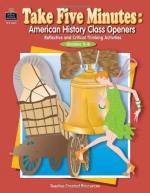|
This section contains 282 words (approx. 1 page at 300 words per page) |

|
One of the consequences of the growth of factories and railroads was an enormous increase in the number of industrial accidents. Lawsuits based on personal injuries from these accidents contributed to the emergence of the new subject of torts, which covered civil (as opposed to criminal) wrongdoing. One of the first important principles of tort law was the "fellow servant rule," which barred workers from suing their employers for injuries that took place on the job as a result of a fellow worker's negligence. The most influential decision in the American adoption of this rule (which shifted a significant cost of economic growth from entrepreneurs to employees) was Lemuel Shaw's opinion in Farwell v. The Boston and Worcester Railroad Co., 4 Met. (45 Mass.) 49 (1842), in which the Massachusetts Supreme Court denied recovery to a railroad engineer who lost his right hand in a...
|
This section contains 282 words (approx. 1 page at 300 words per page) |

|




